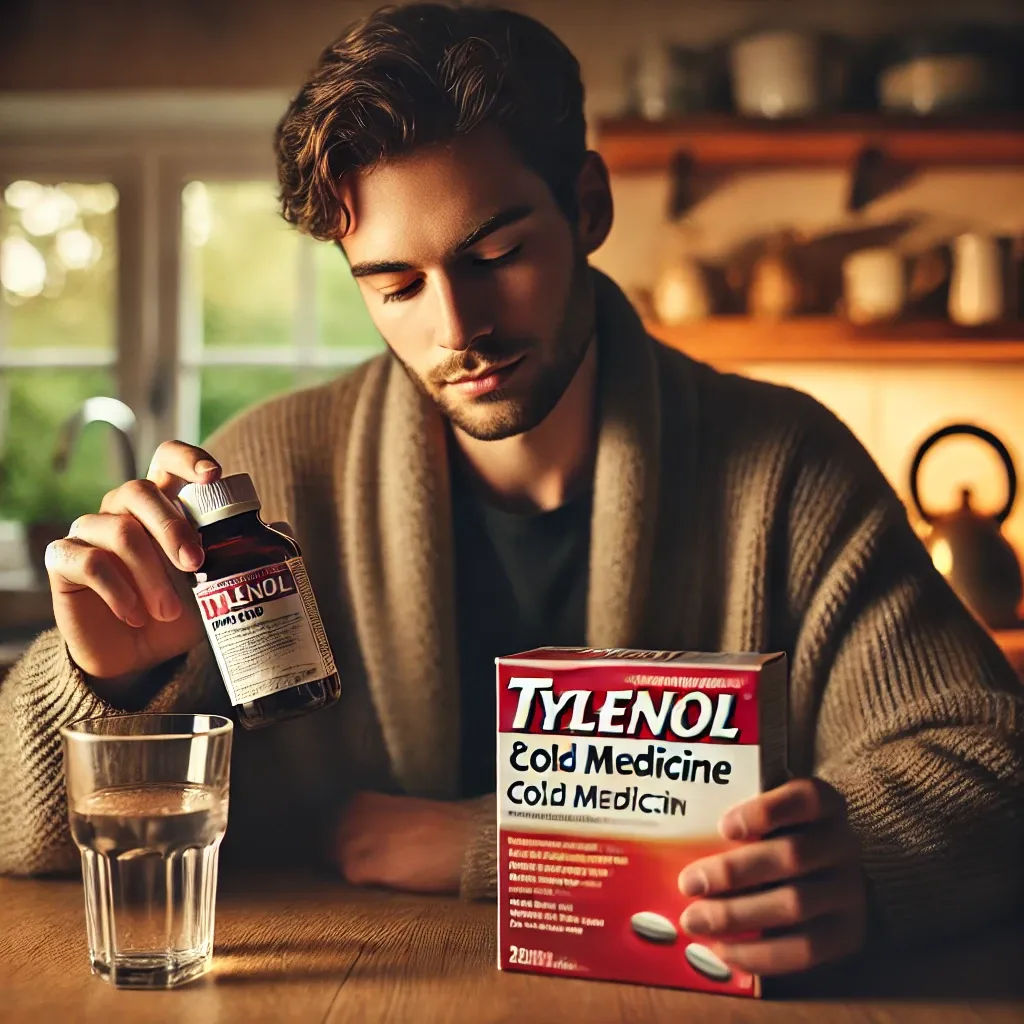Have you ever wondered if it’s safe to take Tylenol after cold medicine? Can combining the two medications cause any issues? Explore the effects, benefits, and precautions when mixing Tylenol and cold medicine.
When you’re feeling under the weather, cold medicine and pain relievers like Tylenol are often your go-to solutions. However, it’s important to understand the potential effects and safety of combining these medications. Many wonder if it’s safe to take Tylenol after cold medicine, and whether this combination could have any harmful effects. This article will break down the key considerations, including the potential side effects and how to take both medications responsibly.
Tylenol After Taking Cold Medicine: Is It Safe?
Taking Tylenol after cold medicine is a common practice for those managing multiple symptoms at once, but it’s essential to understand how these medications interact. Cold medicines often contain a mix of ingredients designed to address symptoms like congestion, coughing, or fever. Many cold remedies, like those with acetaminophen (which is also in Tylenol), can be problematic when taken together in large quantities.
Key Considerations:
-
Ingredient Overlap Many cold medicines contain acetaminophen, which is the same active ingredient in Tylenol. Taking both could lead to an overdose of acetaminophen, which can damage the liver.
-
Timing Spacing out the dosages of cold medicine and Tylenol can help avoid a buildup of active ingredients in your system.
-
Pain Relief and Fever Management Tylenol can be helpful in reducing fever or alleviating pain, but it should not be relied on as the only remedy. Combining it with cold medicine that already has fever-reducing properties could lead to unnecessary excess.
-
Monitor Your Dosage Pay close attention to the dosage instructions on both the cold medicine and Tylenol bottles. Typically, cold medications advise dosing every 4-6 hours, while Tylenol should not be taken more frequently than every 4 hours.
-
Consult a Doctor If you’re unsure, it’s always wise to consult a healthcare professional before combining these medications.
Learn More About Tylenol and Cold Medicine Interactions
Understanding when and how to use these medications properly can make a significant difference in recovery, so always exercise caution when combining Tylenol with cold medicine.
Cold Medicine and Tylenol Effect: What You Need to Know
When you combine cold medicine with Tylenol, there are various potential effects, some of which can be beneficial and others that can be harmful. The key lies in the ingredients in the cold medicine. Many cold medicines, such as those used to treat colds and flu, contain a range of ingredients designed to tackle different symptoms, from nasal decongestants to pain relievers.
Potential Effects:
-
Synergistic Effects In some cases, combining Tylenol with cold medicine can effectively reduce symptoms like body aches, fever, and headaches.
-
Increased Risk of Overdose Many cold medicines contain acetaminophen, so taking Tylenol on top of this can result in dangerously high levels of the drug in your system.
-
Drowsiness or Stimulation Some cold medicines may cause drowsiness, while others may include stimulants. When mixed with Tylenol, which doesn’t cause drowsiness, you might experience an unexpected effect, such as an overly sedated or jittery feeling.
-
Kidney and Liver Concerns Both Tylenol and certain cold medicines can stress the liver and kidneys if used in excess. If you take these medications too often or in high doses, you might increase your risk of organ damage.
-
Relief from Multiple Symptoms Some people find relief from headaches, congestion, sore throat, and body aches by using a cold medicine with Tylenol. However, it’s crucial not to exceed recommended doses.
Read More About Cold Medicine and Tylenol’s Effects
Balancing the benefits and risks of Tylenol and cold medicine requires careful attention to how they interact. Always check the ingredients list on cold medications to avoid taking too much acetaminophen.
How Tylenol Affects You After Eating Cold Medicine
When it comes to taking Tylenol after eating cold medicine, the order in which you take your medications can make a difference. Your stomach’s contents and the medications you’ve already consumed can affect how well your body absorbs the medication and whether you experience any unwanted side effects.
Important Points to Remember:
-
Absorption Rate Taking Tylenol after a full stomach may delay its absorption, meaning it could take longer to feel relief. Cold medicines, which are often taken with food, may have a similar effect.
-
Stomach Irritation Both Tylenol and cold medicine can irritate the stomach lining if taken without food, especially if taken frequently.
-
Digestive Concerns People with digestive issues or sensitivities might experience nausea or other symptoms when mixing cold medicine with Tylenol.
-
Alcohol Interaction If you’ve consumed alcohol with cold medicine, combining it with Tylenol can increase the risk of liver damage.
-
Time Spacing To ensure the best possible absorption and minimize risks, space out your doses of cold medicine and Tylenol by at least 4 hours.
Learn How Food Affects Tylenol and Cold Medicine Absorption
Understanding the role food plays when taking Tylenol after cold medicine is essential in preventing side effects like nausea, stomach pain, or delayed relief.
Conclusion
Tylenol and cold medicine can offer relief for your cold symptoms, but they come with important considerations. Taking Tylenol after cold medicine or combining the two requires awareness of ingredient overlap, dosages, and possible side effects. To get the most out of your treatment, always read labels carefully, space out doses, and consult with a healthcare professional if you have concerns.
Remember, your health comes first—make informed decisions about the medications you take.






